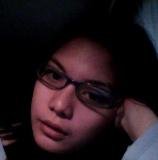It's not an uncommon sentiment or knowledge that "reading" is not a common or desired hobby or interest. Most people, especially those who lead very modern and busy lives, cannot relate to the joys of sitting down with a book, allotting hours and hours of in depth reading and internalizing. And at this certain age, who isn't busy? Reading often spurs the thought of academics, boredom and inconvenience. We might think that adults with so many areas of technology, professions, bills and extra curricular activities are the only busy individuals who find it hard to read even if they want to, but the truth is, children are more susceptible and adaptable to reading online that they rely on complex, fast and upbeat literary forms in Online social networks, ebooks and blogs.
Most traditionalists, academes or those who just love books find it hard to accept that the reading popularity (through books), if not gone stagnant, are dipping due to the emergence of Online access and material. This difficulty in acceptance might have stemmed from uneasiness due to this modern alternative's unreliability and ineffectiveness.It is not effective in a sense that most online literary works are done informally through social networks with less importance in the disciplines of grammar and overall literary strength. The message is often chopped to pieces for online readers who have the power to skip, scan and understand information in a few minutes' time frame. That is why reading through Internet's been made popular because you could get information, entertainment and insights in a few minutes' time. The format is very convenient, interesting and accessible to some. But in terms of literary effectiveness, it is often questioned.
However, readers online, who are not interested in books, feel that they are not being left behind in any way. They feel that reading blogs, engaging in forums, reading online reviews and news are more profitable and beneficial than going through the traditional method. For them, their time is maximized; and more knowledge are exchanged and uncovered versus the linear and time-grueling method through books. Some vowed that they have never harbored interests in going through libraries, entering bookstores or even found the entertainment and benefit from books, yet some are even voracious readers online. The usual examples of these alternative believers are children who have access on the net. A Professor in the University of Michigan, Elizabeth Moje, noted that:
Neurological experts even noted that there is a difference in the method of "learning" that could change the brain's circuitry. Experts believe that the "Internet may also affect the brain’s hard wiring in a way that is different from book reading" It's not necessarily negative, it's just different from the normal effects on depending on books. Since the brain is very powerful and malleable, it naturally adapts to the demands and pressure of any method of learning available. Information processing in various medium is still a form of information processing. Traditionalists may not entirely advocate for this method, but they're just lenient and happy that people are still reading.One early study showed that giving home Internet access to low-income students appeared to improve standardized reading test scores and school grades. “These were kids who would typically not be reading in their free time,” said Linda A. Jackson, a psychology professor at Michigan State who led the research. “Once they’re on the Internet, they’re reading.
In my opinion, I've always been an advocate in reading. I may adore and love books, but I've also known that few share this interest in varying levels. There's ultimately nothing wrong with that. I believe every individual has different sets of interests that inevitably help them grow. The beauty of this age is that alternatives are present to suit everyone's needs and specifications, and there's a freedom of choice. Just like for those who feel that they are not "traditional readers," they have somehow found interest in engaging their literacy skills online. Some may not agree with its effectiveness, but seriously, who cares? It's good enough that everyone's literacy skills have greater chances to be enhanced through this medium, compared to having no exposure to reading at all. It's true that the manner of reading and the way we think are slowly being changed, but the fact that we have become more aware of these changes brought by alternatives, should leave every single expert, academe, writer and online reader more responsible to promote not just effective, increased and beneficial reading but Responsible reading as well. Another area to consider is the integration of medium. It's hopeless and stupid to stop the birth of various mediums that only aim to suit everyone's needs. Writers and voracious readers have learned how to integrate alternative methods such as blogging, social networking and online publishing of works and reviews to their traditional method. It's a shame if we do not responsibly maximize and challenge the medium presented to us.
I love reading. I advocate books above anything else out there and I still think books are the best. But it's also untrue to deny that I also do maximize alternative reading sources online. I am fully aware of its own benefits and it helps most people, especially those whom I know find immense difficulty in traditional reading. There is absolutely nothing wrong reading online. It's a case of different strokes for different folks. As long as everyone gets the chance and interest to read, maximize and get a fair chance to enhance their literacy, then I'd be happy to equally promote it.

No comments:
Post a Comment